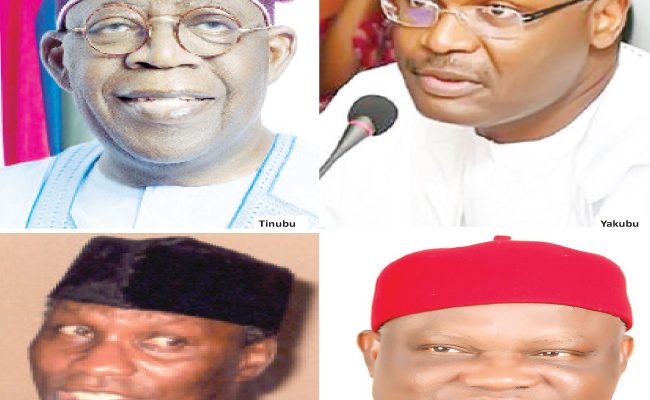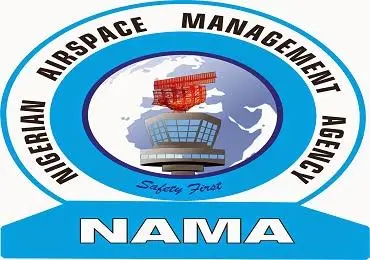With vote-buying becoming shamefully rampant in national elections, TAIWO AMODU examines the criminal act that has turned the nation’s democracy into a farce where only money counts, not the people’s votes.
ONE of the potent encumbrances to transparent, credible electoral process in the country is the menace of vote buying and selling. The transactional process that election has been reduced to at polling booths has made a mockery of democracy.
Concerned stakeholders have since advocated a strong collaboration between the electoral umpire, the Independent National Electoral Commission, (INEC), political parties and relevant federal government agencies towards combating the unwholesome practices.
Compromised parties’ primaries:
But vote buying and selling is not limited to election day alone. The criminal enterprise has long since begun even before the day of election right from within the political parties. Investigation revealed that within the political parties themselves, emergence of candidates has been reduced to unnerving merchandise between the aspirants and delegates who are most often induced to vote “candidates of their choice.”
Checks revealed that at the end of the presidential conventions held on the eve of the last general elections by the ruling APC and the main opposition party, the Peoples Democratic Party, the media was awash with mind-boggling revelations of “dollar war” between the standard bearers of candidates of the two dominant parties and their closest rivals.
Tragedy of TraderMoni programme executed by the Buhari administration
The immediate past administration under Muhammadu Buhari introduced in May 2016, a finance scheme, as part of the Government Enterprise and Empowerment Programme (GEEP).
The GEEP included the MarketMoni and FarmerMoni schemes, targeted at market women and farmers, respectively.
The TraderMoni with Bank of Industry as the driving financial institution was to provide zero-interest loans to small-scale traders, artisans, and farmers to help the low-income Nigerians become financially independent and improve their standard of living.
The interest-free loan was between ₦10,000 to ₦300,000.
Opposition parties however kicked against the manner of disbursement as the office of then vice-president was accused of using the scheme to ingeniously induce voters.
There were unconfirmed reports that political consideration was indeed attached to the scheme. It was said that possession of Permanent Voters Cards was one of the conditions to be fulfilled by ultimate beneficiaries.
Former Senate President, Senator Bukola Saraki had on the eve of the 2019 general elections accused the ruling party of using the TraderMoni scheme to induce prospective voters.
Saraki who incidentally was the Director -General of the Presidential Campaign office of Atiku Abubakar, the PDP presidential candidate raised the alarm that a programme by the Federal Government had been hijacked by the ruling party for which public fund was appropriated for all Nigerians.
Calling for abrogation of the scheme, Saraki alleged that the APC had turned it into a sophisticated vote-buying arrangement.
He said: “This programme has been going on for the last few years. In 2015, I didn’t see the vice president going anywhere to give anybody trader money. In 2016, I didn’t see the vice president going anywhere to give anybody trader money.
“In 2017, I didn’t see the vice-president going anywhere to give anybody trader money. But all of a sudden in 2018, and the worse part about it is that he goes with women leaders of his party, governor of his party.
“At least, if you’re going and since it is Nigerian money he should have women leaders of all the political parties because the money belongs to Nigeria.
“But all I see is APC women leaders. It is morally wrong. We have said it. It equates in a way to a sophisticated vote buying because if it is not vote buying, he should have been doing it since 2015. You got the budget for it 2015, in 2016 you didn’t go, 2017 you didn’t go but all of a sudden 2018 that’s the biggest programme.
“And when you go, carrying APC governors beside you, women leaders of the party of APC beside you, you’re collecting PVC cards.
“Nigerians are not going to be fooled like that. Anything that is not based on sincerity…if he has been doing it since 2015, 2016, 2017, then you can say that.
“But to us, most people, it is sophisticated vote buying.
“And next time he goes out, he should carry people that represent the community, not just one party.
“Let them carry members, women associations from not only a particular party or political association.
“Definitely, it is wrong. It’s either they stop it completely or they expand the space and ensure that it represents all Nigerians. Because the money, when it was appropriated, we did not put beside it ‘APC appropriated money.’ We said it was money appropriated for all Nigerians.
“So, when they go out for such event, it should have all Nigerians present.
“I’m sure when they’re going, they can invite neighbouring states or even the political leaders of other political parties in that state should participate at any event and not just the ruling party.”
Way forward for electoral reforms:
Checks by Sunday Tribune revealed that successive administrations after Chief Olusegun Obasanjo had tried to reform the nation electoral process.
The late Umaru Yar’Adua administration which admitted electoral heist in the 2007 general elections that produced him, had a year after set up the Justice Muhammadu Uwais Electoral Reform committee.
The 22-member Committee while submitting its report in August 2008 said it made far-reaching “recommendations aimed at improving the performance of various institutions and stakeholders in the electoral process.”
The INEC in deference to Electoral Act also made efforts to collaborate with the two anti- graft agencies in the country, the Independent Corrupt Practices and Other Related Offences Commission, (ICPC) to arrest perpetrators of vote buying on election day.
Civil Society Organisations have however expressed strong reservations about the capacity of the agencies to walk its talks on prosecution of alleged suspects.
INEC seeks for paradigm shift…
Sunday Tribune investigation revealed that the INEC is already seizing the initiative to curb the incident of vote buying/ selling through procurement of PVCs by desperate politicians.
At a recent meeting with its Resident Electoral Commissioners, (REC), Chairman of the Commission, Professor Mahmood Yakubu, revealed that the INEC among the recommendations in its 524-page report on planning and reform and learning from the experience of the 2023 General Election, would soon phase out the use of PVCs as sole means of accreditation of voters.In its place, the electoral umpire is proposing computer-generated slips issued to the voter or even downloaded from the Commission’s website as sufficient means of accreditation.
Professor Yakubu noted that a phase-out of the PVCs aside saving cost would also mitigate disenfranchisement of voters through purchase of their PVCs.
He said:” Among the major highlights of the Commission’s recommendations is the imperative of legal clarity in result management, with regard to manual transfer versus the electronic transmission of results. The Commission also believes that with the introduction of the Bimodal Voter Accreditation System (BVAS), the use of the Permanent Voters’ Cards (PVC) as the sole means of identification for voter accreditation on Election Day should be reviewed. Those who already have the PVCs can still use them to vote, but going forward, computer-generated slips issued to the voter or even downloaded from the Commission’s website will suffice for voter accreditation. This will not only save cost, it will also eliminate the issues around the collection of PVCs and the diabolical practice of buying up the cards from voters in order to disenfranchise them.”
Government must address excruciating poverty —Comrade Erubami
Former Chairman of Transition Monitoring Group, Comrade Moshood Erubami traced the trajectory of inducement in the electoral process to compromised primaries organized by political parties to produce candidates.
Aside strengthening the statutes to deal with vote buying and selling, the human rights activist called on government to create enabling environment for gainfully employment of Nigerians.
He said:” The menace of vote buying and selling during election is part of the desperation introduced by money bags to win elections at all cost. Buying and selling is not just starting on election day even though where it happened, it has been hidden from the public lenses.
“The electoral fraud of vote buying started from the undemocratic primaries usually organized by the parties while ignoring their guidelines, the electoral laws, the constitution of the political party and relevant provisions of the country’s Constitution. Poverty naturally is at the head of the vote-buying malpractices as it’s targeted at overpowering the weak contestant by the stronger and deep-pocketed Co- Contestant against all guiding rules.
“The act can only be solved through government conscious policies against poverties of material wellbeing, courage and knowledge currently residing with the masses. This will include the provisions of gainfully employment, qualitative education and creating conditions for the sustainable development. These in addition to strong prosecutorial fight according to the power granted to INEC and in accordance with the laws against the commission of electoral crimes. “Weak prosecution of offences is a general bane which allows offenders to escape justice. The difficulty encountered in prosecuting electoral offenders is the same in the prosecution of people who are exposed of corruption especially where the person involved is a big fish. “I must tell you that both the persons who sell and buy votes are criminals and to that extent liable for prosecutions but the weakness of the political will especially given the indifference, apathy and ambivalence of INEC unfortunately.”
Modern technology can stave off voters inducement —Chekwas Okorie
Chairman of Board of Trustees of the All Progressives Grand Alliance, ( APGA) who recalled that elections in Nigeria have always been characterized by ballot snatching, violence and voters inducement declared that deployment of modern technology would mitigate the aberration in the electoral process.
He said: ”The cankerworm of vote buying and selling in our electoral system has grown incrementally worse in subsequent elections after the 1993 general elections conducted by Professor Humphrey Nwosu led electoral Commission which remains in the history of post-civil war elections as the freest and fairest election in Nigeria.
“The electoral system adopted by the Independent National Electoral Commission, INEC, thereafter, has worsened the manipulation of the system, exposing it to ballot box snatching, inflation and forging of electoral results, vote buying and selling with active connivance of INEC and security personnel and a highly compromised judicial officers.
“INEC has since acquired the technological infrastructure and knowledge to deliver to Nigeria credible, transparent, and acceptable elections that will make transition of power at all levels seamless and devoid of acrimony and avoidable expensive litigations that often expose our judges and the judicial system to corruption. “Unfortunately, INEC lacks the courage and moral rectitude to do the right thing.
I have been persistent over the years in recommending that INEC must adopt a mandatory electronic voting system in our elections as the only way to guarantee that the sovereignty of the Nigerian electorate in recruiting their leaders and representatives at all levels is secured.
Electronic voting system, which entails among other things the transmission of votes from the Bimodal voters accreditation system, BVAS, direct to the IREV portal real time will have at once the salutary effect of bypassing the various collation centers where election results are manipulated, multiple voting, inflation of election results at the Polling Units, etc. Countries that use electronic voting systems do not shut down their economies on election days. Voter participation will be astronomically high because of voters’ confidence. The vices of vote buying and selling, election related violence, and excessive deployment of security personnel during elections will be reduced to the barest minimum.
In this way, the legitimacy of our elections will be assured and, in turn, will further assure the credibility of our leadership recruitment process.
READ ALSO: #EdoDecides2024: Police nab PDP members, fake journalist for vote buying







